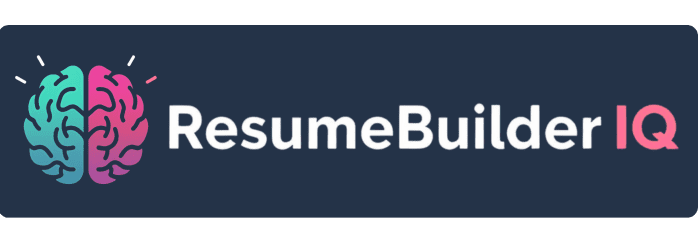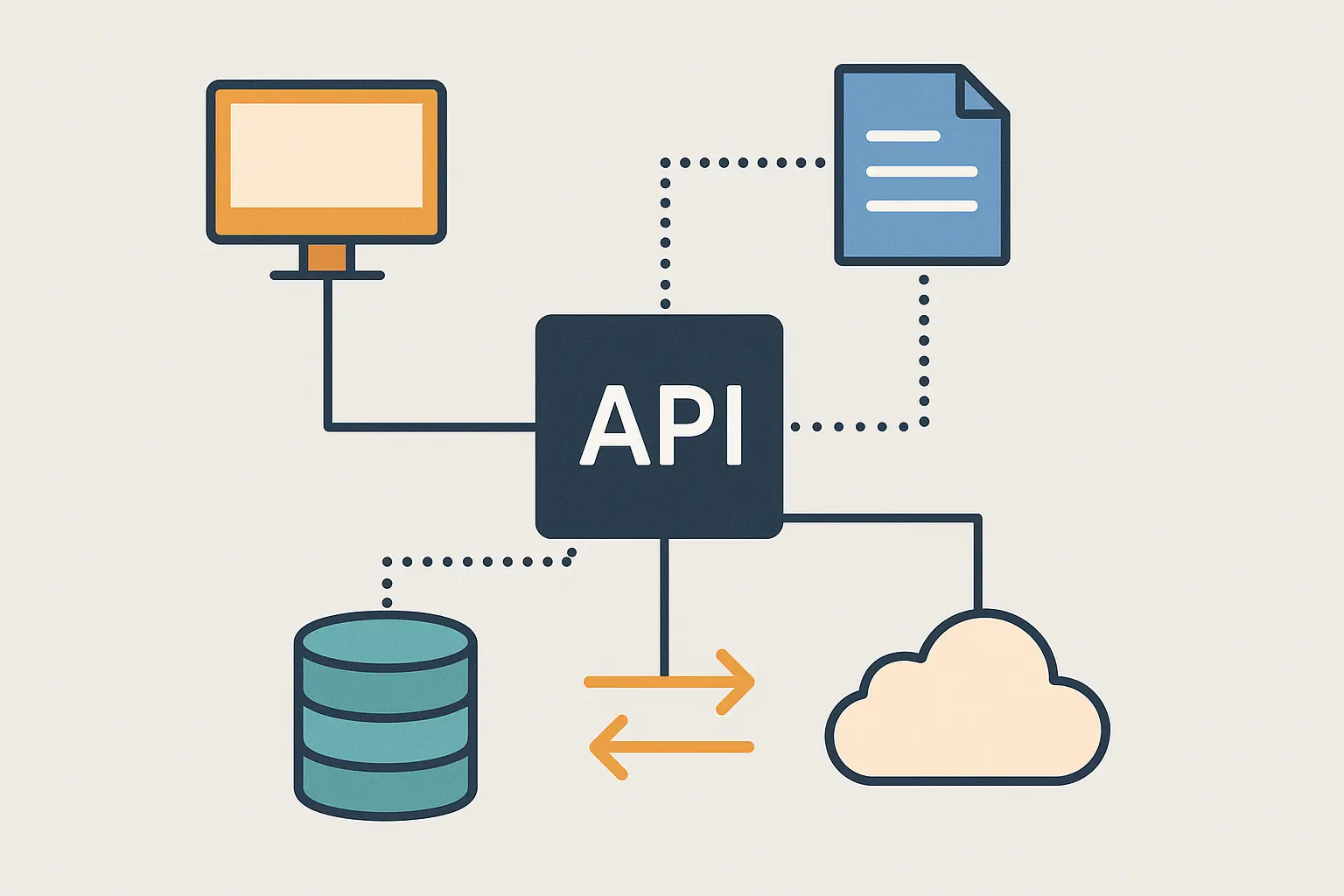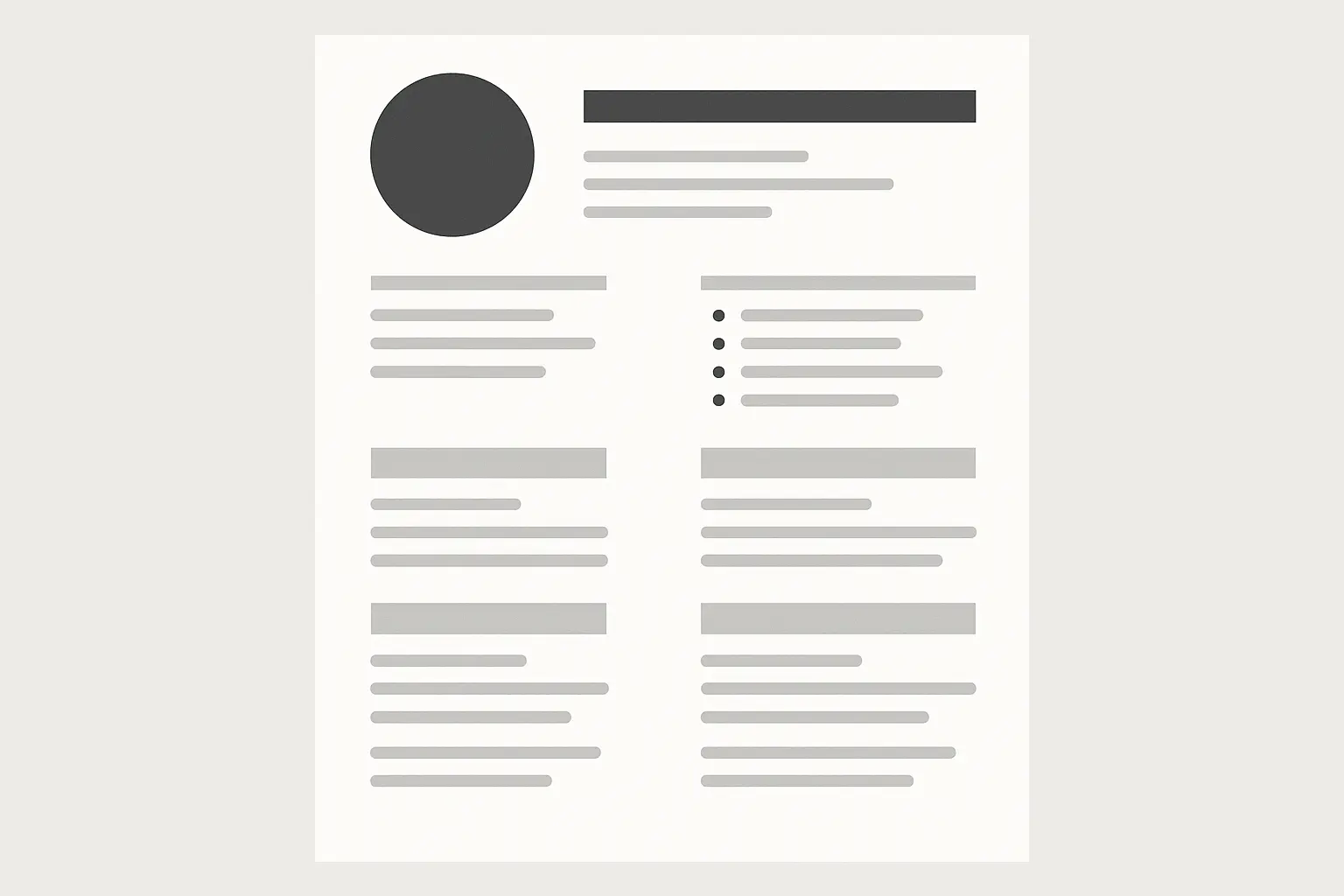Product Manager Interview Questions: The Real Preparation Guide That Actually Works

Look, I’m going to be straight with you. Most PM interview prep guides are garbage. They’re written by people who’ve never actually hired PMs, filled with generic frameworks that make you sound like every other candidate.
After five years of interviewing hundreds of product managers and coaching even more candidates, I’ve learned what actually works when preparing for product manager interview questions. And it’s not what you think.
The biggest mistake I see? Candidates who can recite RICE prioritization in their sleep but can’t tell me about a time they had to convince an engineering team to pivot mid-sprint. Companies don’t hire frameworks – they hire people who can get stuff done.
Modern product manager interviews go far beyond simple case studies. Companies now use sophisticated evaluation methods that mirror real PM work, and understanding this evolution makes all the difference in your preparation. According to recent industry data, we redesigned the onboarding process, which resulted in a 20% increase in user retention within the first three months post-launch demonstrates the kind of quantifiable impact that resonates with hiring managers during interviews.
Table of Contents
-
What Companies Really Test For
-
The Questions That Actually Matter
-
How Different Industries Test Product Managers
-
How to Prepare (Without Memorizing Scripts)
-
Avoiding the Mistakes Everyone Makes
-
Building Your PM Interview Success Story
-
Final Reality Check
TL;DR
Here’s what you need to know about crushing your product manager interview:
-
Modern PM interviews test four core areas: product intuition, analytical thinking, leadership experience, and technical collaboration skills
-
Different industries require tailored preparation – B2B SaaS companies focus on enterprise sales integration while consumer apps emphasize user psychology
-
Behavioral questions using the STAR method now dominate interviews, requiring specific examples of stakeholder management and conflict resolution
-
Technical PMs face additional scrutiny around system design, API development, and data product management
-
Success requires building a portfolio of quantified impact stories rather than just memorizing frameworks
-
Mock interviews with feedback loops are essential for refining communication style and timing
-
Authentic insights matter more than perfect framework execution – interviewers can spot rehearsed responses
What Companies Really Test For
Product manager interviews have transformed dramatically over the past few years. I remember when a simple case study and a few behavioral questions would suffice. Now? Companies put you through comprehensive assessments that include take-home assignments, cross-functional panel interviews, and behavioral deep-dives that test how you actually think and operate as a product leader.
The demand for skilled product managers continues to evolve, with recent industry reports showing that hiring for these roles has increased 43% year over year as companies expand their digital transformation initiatives. This surge means you’re competing against more candidates, but it also highlights the critical need for comprehensive interview preparation.
Let’s cut through the BS. Every PM interview boils down to four things: Can you think like a customer? Can you work with data? Can you lead without being anyone’s boss? And can you talk to engineers without making them want to hide?
Just as mastering second interview questions requires deeper preparation and strategic thinking, product manager interview questions demand comprehensive understanding of multiple evaluation dimensions beyond basic qualifications.
Product Intuition and Strategic Thinking
These questions go way beyond surface-level feature requests. Interviewers want to see how you identify genuine user needs, make strategic product decisions with limited data, and balance competing priorities while maintaining a clear product vision.
Here’s what NOT to do when asked about improving Trello: Don’t immediately jump into features. I’ve watched candidates rattle off wish lists like they’re ordering from a menu.
Instead, start with questions: “Who are we improving it for? What’s not working for them right now?” Then dig into the problem before proposing solutions. Show you think like a PM, not a feature factory.
When you do propose solutions, be specific: “I’d focus on enhancing automation capabilities within boards to increase efficiency for power users. I’d start by analyzing user behavior data on existing automation features like Butler, identifying common repetitive tasks that aren’t automated, and propose customizable automation templates that users can apply across multiple boards.”
The key here is showing you can think both as a customer and a business owner. You’re not just throwing out random features – you’re demonstrating strategic thinking about user segments, data analysis, and measurable outcomes.
Data-Driven Decision Making Skills
Modern PMs must demonstrate fluency with metrics, experimentation, and analytical reasoning. These common product manager interview questions test your ability to set meaningful KPIs, design proper A/B tests, interpret data correctly, and build compelling business cases that connect product changes to measurable business outcomes.
|
Analytical Skill Category |
Key Assessment Areas |
Sample Questions |
|---|---|---|
|
Metrics Definition |
KPI selection, success measurement |
“What metrics would you track for a new messaging feature?” |
|
A/B Testing |
Experimental design, statistical significance |
“How would you test pricing changes?” |
|
Root Cause Analysis |
Problem decomposition, data interpretation |
“Daily active users dropped 15% – investigate why” |
|
Business Case Building |
ROI calculation, impact quantification |
“Justify investment in mobile app redesign” |
The secret? Always start with “What are we trying to measure and why?” before diving into metrics. If daily active users dropped 15%, don’t immediately blame the latest feature release. Walk through possible causes systematically.
Leadership Through Influence
Behavioral questions now dominate PM interviews because past performance predicts future success better than hypothetical scenarios. Interviewers use the STAR method to understand how you’ve navigated real challenges, managed stakeholder relationships, and delivered results through influence rather than authority.
Similar to how nursing interview questions focus on real-world scenarios and patient care experiences, product manager behavioral assessments evaluate your actual track record of stakeholder management and problem-solving under pressure.
This is where most people sound like robots reading from a script. Stop trying to perfectly execute STAR method and just tell me what happened like you’re talking to a friend.
Instead of: “In my previous role as Product Manager at Company X, I was tasked with optimizing the user onboarding flow…”
Try: “So we had this problem where half our new users would sign up and then just… disappear. Never came back. It was driving everyone crazy.”
The story matters more than the structure. Pick stories where you had to influence people, deal with conflict, or make tough calls with incomplete information.
The Questions That Actually Matter
Understanding the specific question types you’ll encounter and the evaluation criteria behind each one is essential for success. From product design challenges to market sizing exercises, each question type tests different aspects of your PM capabilities and requires distinct preparation approaches.
Product Design Questions (AKA “Fix This Thing”)
Product design questions evaluate your systematic approach to solving user problems and building solutions. These scenarios test whether you can identify the right problem to solve, understand user needs deeply, and design solutions that balance user value with business objectives.
These aren’t about coming up with the next billion-dollar app idea. They want to see if you can think through problems step by step without jumping straight to solutions.
The strongest candidates don’t jump straight into solutions. They spend time understanding the problem space, asking clarifying questions, and demonstrating genuine curiosity about user needs. Product manager interview questions in this category often start broad and then narrow down to specific implementation details.
Market Entry and Competitive Positioning
Interviewers assess your strategic thinking through market entry scenarios that require you to analyze competitive landscapes, identify market opportunities, and develop go-to-market strategies. These questions reveal your business acumen and ability to think beyond individual features to broader market dynamics.
Your analysis should go beyond feature comparisons to examine pricing strategies, target markets, and competitive moats. Product manager interview questions often probe whether you understand sustainable competitive advantages versus temporary feature gaps.
Feature Prioritization and Roadmap Planning
Prioritization questions test your framework knowledge and decision-making process. While frameworks provide structure, interviewers really want to see how you balance competing stakeholder needs, resource constraints, and strategic objectives to make tough trade-off decisions.
Stop trying to shoehorn every answer into a framework. I can tell when you’re thinking “Oh, this is a prioritization question, I should use RICE” instead of actually thinking about the problem.
Frameworks are training wheels. Use them to structure your thinking, but don’t make them the star of your answer. Candidates who succeed here don’t just recite RICE or Kano models. They adapt their approach based on the specific context and explain their reasoning clearly.
Analytics and Metrics Mastery
Analytical questions assess your quantitative reasoning and ability to make data-driven decisions. These scenarios test whether you can identify the right metrics to track, design proper experiments, and interpret results to drive product improvements.
This is where candidates either shine or crash spectacularly. They’re not looking for you to be a data scientist, but you need to prove you won’t make decisions based on gut feelings alone.
Quick tip: Have three go-to metrics ready for any product:
-
Something that measures user value (engagement, task completion)
-
Something that measures business value (revenue, conversion)
-
Something that measures product health (retention, performance)
Root Cause Analysis and Problem Solving
When metrics decline or problems occur, PMs must systematically identify underlying causes rather than jumping to solutions. These questions evaluate your structured thinking process and ability to dig deeper into data to find actionable insights.
PM interviews often include scenarios where you need to investigate metric drops or unexpected user behavior. Your approach should be methodical – forming hypotheses, identifying data sources, and ruling out potential causes systematically.
Experimentation and A/B Testing Design
Modern product development relies heavily on experimentation, so interviewers test your understanding of statistical significance, experimental design, and how to measure product changes effectively. You’ll need to demonstrate knowledge of proper test setup, sample sizes, and result interpretation.
Understanding the economics of digital advertising is crucial for PMs working on monetization strategies. According to industry data, the average cost per thousand views in advertising across all industries ($14.90) provides a baseline for revenue estimation questions commonly asked in PM interviews.
When tackling estimation questions, remember that YouTube generates about $7.5m per day in ad revenues in the US only according to structured calculation methods, demonstrating how breaking down complex problems into manageable components leads to reasonable estimates.
|
Estimation Question Type |
Framework Approach |
Key Considerations |
|---|---|---|
|
Market Sizing |
Population × Penetration Rate × Usage |
Demographics, adoption curves, market maturity |
|
Revenue Projections |
Users × Conversion Rate × ARPU |
Pricing models, customer segments, churn rates |
|
Resource Planning |
Demand × Service Time × Utilization |
Peak capacity, efficiency factors, growth scaling |
|
Technical Capacity |
Storage/Bandwidth × Growth Rate |
Infrastructure costs, data retention, user behavior |
Interviewers care more about your thought process than your final numbers. Walk through your assumptions clearly and acknowledge where you’re making educated guesses versus using known data points.
How Different Industries Test Product Managers
Product management varies significantly across industries, and interview approaches reflect these differences. B2B SaaS companies emphasize enterprise sales integration and customer success metrics, while consumer apps focus on user engagement and growth psychology. Understanding these variations helps you tailor your preparation and responses appropriately.
B2B vs B2C: It’s Like Different Sports
B2B interviews focus on: Sales team integration, customer success metrics, enterprise buying cycles, and ROI justification.
B2C interviews focus on: User psychology, growth loops, engagement metrics, and viral mechanics.
Don’t try to fake expertise in both. Pick your lane and go deep.
Enterprise Sales and Customer Success Integration
B2B product managers must understand how product decisions impact sales cycles, customer onboarding, and revenue expansion. Interview questions explore your knowledge of enterprise buying processes and ability to build products that support complex sales organizations.
Consumer Psychology and Growth Strategies
Consumer-focused roles require deep understanding of user behavior, engagement psychology, and growth hacking techniques. These questions assess your knowledge of user acquisition, retention strategies, and behavioral design principles that drive product adoption.
The product manager interview process for consumer companies often includes questions about viral mechanics, engagement loops, and monetization strategies that don’t alienate users. You need to demonstrate understanding of user psychology and growth dynamics.
Technical PM Specializations
If you’re interviewing for a technical PM role, they’ll test whether you can have real conversations with developers without everyone rolling their eyes.
Technical product managers face additional scrutiny around their ability to bridge business requirements with complex technical implementations. These roles require deeper technical knowledge and the ability to communicate effectively with both business stakeholders and engineering teams.
You don’t need to code, but you should understand:
-
Why engineers push back on certain requests (usually technical debt or complexity)
-
How to prioritize bug fixes vs new features
-
What makes APIs good or terrible
-
Basic system design concepts
Red flag response: “I’ll let engineering figure out the technical details.”
Better response: “I’d want to understand the technical trade-offs before we commit to this approach.”
API and Platform Product Management
Platform PM roles require understanding developer experience, technical partnership models, and how to build products that other developers use. Interview questions focus on API design principles, developer onboarding flows, and strategies for driving platform adoption.
Creating intuitive APIs and comprehensive documentation requires understanding developer workflows and pain points. These questions assess your ability to design technical products that prioritize user experience for a technical audience.
Successful platform PMs think about developers as customers with specific needs around documentation, SDKs, and support resources. Your responses should demonstrate empathy for the developer experience and understanding of technical adoption barriers.
Data Product and Analytics Platforms
Data product managers must understand data pipelines, analytics tools, and privacy regulations that impact product development. Interview questions explore your knowledge of data architecture, machine learning integration, and compliance considerations.
Modern data products must navigate complex regulatory environments and ethical considerations around user privacy. These questions test your understanding of legal requirements and ability to build products that respect user data while delivering business value.
Product management interview questions in this area often involve balancing personalization with privacy, implementing GDPR compliance, or designing ethical AI systems. Your responses should show awareness of both technical and regulatory constraints.
How to Prepare (Without Memorizing Scripts)
Successful PM interview preparation requires more than memorizing frameworks and practicing case studies. You need to develop authentic insights, build a portfolio of compelling impact stories, and practice communicating complex ideas clearly under pressure. This systematic approach helps you stand out from candidates who rely solely on textbook responses.
Build Your Story Arsenal
Forget about having one perfect story for each behavioral question type. Instead, have 5-6 solid stories that you can adapt to different questions. Each story should have:
-
A clear problem or challenge
-
Your specific actions (not what the team did)
-
Measurable results
-
What you learned
When describing data-driven decision making, structure your response: “I used data to demonstrate that our mobile app’s user engagement was declining due to an overly complex onboarding process. By presenting clear, actionable insights from user behavior analytics and A/B testing, I convinced stakeholders of the need to simplify the onboarding flow, resulting in a 20% increase in user retention within three months.”
Just as crafting an effective resume summary requires highlighting your most impactful achievements, building your PM interview portfolio means selecting stories that demonstrate quantifiable business results and leadership capabilities.
Pro tip: Practice telling these stories in different lengths. Sometimes you’ll have 30 seconds, sometimes 3 minutes.
Quantifying Your Product Impact
Learning to present achievements using specific metrics, revenue impact, and efficiency improvements makes your experience more credible and memorable. Develop techniques for connecting product changes to business outcomes, even when the relationship isn’t directly causal.
The most compelling product manager interview questions and answers include specific numbers and timeframes. Instead of saying “improved user engagement,” say “increased daily active users by 25% over six months through implementing personalized content recommendations.”
Methods for connecting product improvements to revenue growth require understanding attribution models and business metrics. Practice explaining how your product decisions influenced customer acquisition, retention, or expansion revenue.
Stakeholder Collaboration Success Stories
Prepare specific examples that highlight your ability to work effectively with diverse teams and drive results through influence rather than authority. These stories should demonstrate your diplomatic skills, conflict resolution abilities, and track record of aligning stakeholders around common goals.
Your product manager interview prep should include stories about navigating difficult conversations, building consensus among disagreeing parties, and maintaining team momentum during setbacks. These human elements often matter more than technical knowledge.
Mock Interviews That Don’t Suck
Most mock interviews are useless because people are too nice. Find someone who will actually challenge you and point out when you’re being unclear or boring.
Better yet, record yourself answering questions. You’ll be horrified at how many “ums” and “you knows” you use, but it’s the fastest way to improve.
Structured practice sessions that simulate real interview conditions help you refine your communication style, improve your timing, and build confidence. Focus on incorporating feedback systematically and continuously improving your performance through iterative practice.
The importance of mock interviews is emphasized by industry experts, with Microsoft Product Manager Areeb Sanadi noting that “Mock interviews help you refine your responses and build confidence” and recommending resources for practicing with real-world scenarios.
Feedback Integration and Continuous Improvement
Systematic approaches to incorporating interview feedback require tracking your performance across different question types and identifying patterns in your responses. Use this data to focus your preparation efforts on areas that need the most improvement.
Similar to how professionals benefit from understanding follow-up strategies after interviews, systematically incorporating feedback from mock PM interviews helps you identify improvement areas and refine your approach for future conversations.
Interview Preparation Checklist:
-
Research company mission, values, and recent product launches
-
Prepare 3-5 STAR method stories for behavioral questions
-
Practice market sizing and estimation problems
-
Review technical concepts relevant to the role
-
Prepare thoughtful questions about the team and product strategy
-
Schedule mock interviews with peers or mentors
-
Quantify impact from previous roles with specific metrics
-
Research the interviewer’s background on LinkedIn
PM interview success depends heavily on this systematic preparation approach. I’ve seen candidates with less experience outperform more senior candidates simply because they prepared more thoroughly and could articulate their impact clearly.
Avoiding the Mistakes Everyone Makes
Understanding frequent interview mistakes helps you avoid common pitfalls and develop recovery strategies when things don’t go as planned. The most successful candidates know how to adapt their approach mid-interview and turn challenging moments into opportunities to demonstrate resilience and problem-solving skills.
The Framework Trap
Stop trying to shoehorn every answer into a framework. I can tell when you’re thinking “Oh, this is a prioritization question, I should use RICE” instead of actually thinking about the problem.
While frameworks provide useful structure, overrelying on them can make your responses feel robotic and memorized. The key is balancing structured thinking with authentic insights that demonstrate genuine understanding rather than textbook knowledge.
Instead of mechanically applying RICE framework, demonstrate authentic thinking: “While RICE suggests prioritizing Feature A due to high reach, I’d actually recommend Feature B because our user research revealed that power users—who drive 80% of our revenue—are experiencing significant friction that Feature B directly addresses, even though it affects fewer total users.”
This approach shows you can think critically about frameworks rather than blindly following them. The product manager interview process rewards candidates who can adapt their thinking to specific contexts.
The Perfectionist Problem
You don’t need to have the “right” answer to every question. Sometimes the best response is “I don’t have enough information to decide that. Here’s what I’d want to find out first.”
Admitting uncertainty while showing how you’d resolve it is way better than making up confident-sounding nonsense.
Methods for developing genuine perspectives on products and markets go beyond memorizing frameworks to include real market observation, user empathy, and strategic thinking. Practice forming original opinions about products and industry trends that showcase your product sense.
The Jargon Overload
If you say “synergies,” “leverage,” or “ideate” in my interview, I’m going to assume you learned product management from LinkedIn posts. Talk like a human being.
Many candidates struggle with communication missteps – using too much jargon, providing excessive detail, or failing to structure responses clearly. Developing techniques for maintaining clarity under pressure helps you communicate complex ideas effectively even when facing unexpected questions.
Structured Thinking Under Pressure
Maintaining clear communication during challenging interviews requires practice and preparation. Focus on developing frameworks for organizing your thoughts quickly and presenting ideas in a logical sequence that’s easy for interviewers to follow.
I’ve watched candidates lose their composure when asked unexpected product manager interview questions. The key is taking a moment to collect your thoughts rather than rushing into an unstructured response.
Building Your PM Interview Success Story
Your interview success depends on how effectively you present yourself throughout the entire process. This includes crafting a compelling resume that gets you in the door, preparing authentic stories that showcase your capabilities, and following up professionally after interviews.
Creating a standout application starts with understanding ATS-friendly resume strategies that help your PM experience get noticed by hiring managers and pass through applicant tracking systems effectively.
Resume Builder IQ’s AI-powered platform helps product manager candidates create resumes that pass ATS systems and capture hiring manager attention by optimizing for PM-specific keywords and demonstrating quantifiable impact. The platform’s industry-specific templates and AI suggestions help you articulate complex product achievements in concise, compelling language—the same communication skills that interviewers evaluate during the interview process.
By using Resume Builder IQ’s skill-based optimization and ATS-friendly designs, you ensure your resume effectively bridges your preparation efforts with landing those crucial first-round interviews where you can showcase your product management expertise. The platform helps you present your experience in a way that aligns with what PM hiring managers are actually looking for.
The Follow-Up Game
Send a thank-you email within 24 hours. Reference something specific from the conversation. Don’t just say “Thanks for your time” – that’s what everyone does.
Try: “Thanks for the great conversation today. Your point about balancing technical debt with feature development really resonated with me, especially given my experience with [specific example].”
Post-Interview Follow-up Template:
-
Send thank-you email within 24 hours
-
Reference specific discussion points from the interview
-
Reiterate your interest and key qualifications
-
Attach any relevant work samples or case studies mentioned
-
Connect with interviewer on LinkedIn with personalized message
-
Follow up on timeline if no response within stated timeframe
Your follow-up should demonstrate the same attention to detail and strategic thinking that you showed during the interview questions for product manager position discussions. This consistency reinforces your candidacy and keeps you top of mind.
Final Reality Check
Here’s the truth nobody tells you: Sometimes you’ll do everything right and still not get the job. Maybe they had an internal candidate. Maybe they changed the role requirements. Maybe the hiring manager’s having a bad day.
Don’t take it personally. Ask for feedback, learn from it, and move on to the next one.
Product manager interviews have evolved into comprehensive assessments that test your ability to think strategically, communicate clearly, and drive results through influence. Success requires more than memorizing frameworks—you need to develop authentic insights, quantify your impact, and practice communicating complex ideas under pressure.
The candidates who stand out are those who can balance structured thinking with genuine product intuition, demonstrate measurable impact from their experience, and show they can navigate the complex stakeholder dynamics that define modern product management. Your preparation should focus on building these capabilities rather than just practicing interview questions.
The candidates who eventually succeed aren’t necessarily the smartest or most experienced. They’re the ones who can clearly communicate their thinking, learn from feedback, and keep improving their approach.
Focus on getting better at the process, not just landing any specific job. The right role will come.
Remember that every interview is an opportunity to learn and improve, regardless of the outcome. The skills you develop preparing for PM interviews—strategic thinking, clear communication, and analytical reasoning—will serve you well throughout your product management career.
Just as understanding the balance between hard and soft skills is crucial for career success, mastering PM interviews requires combining technical knowledge with interpersonal capabilities that demonstrate your readiness to lead cross-functional teams.
The product management interview questions and answers you prepare today will shape your career trajectory. Invest the time in thorough preparation, practice with real scenarios, and focus on developing authentic insights that showcase your unique perspective on products and markets. Your future PM role depends on it.
[Keywords to Include:]
[Content Summary:]









